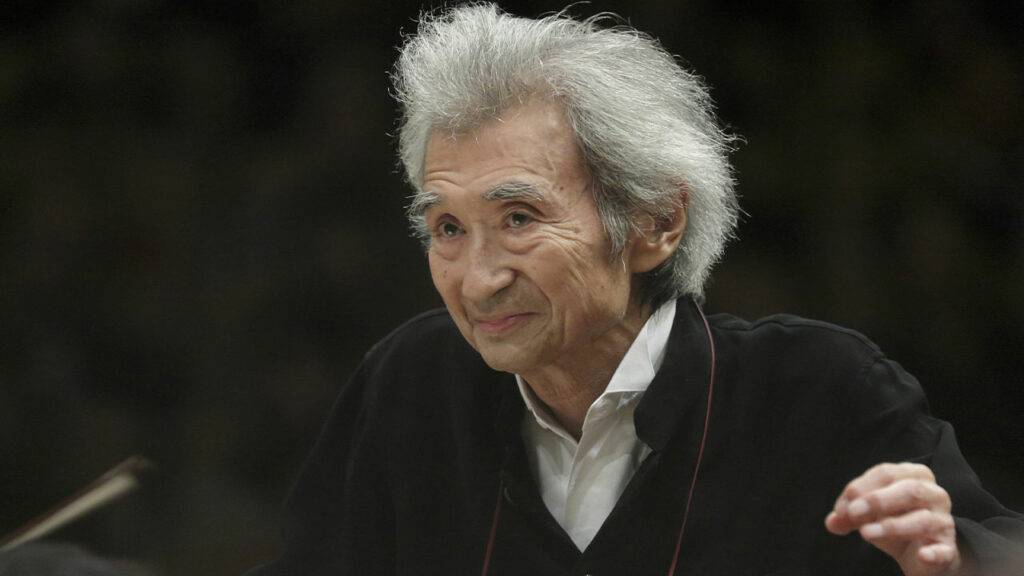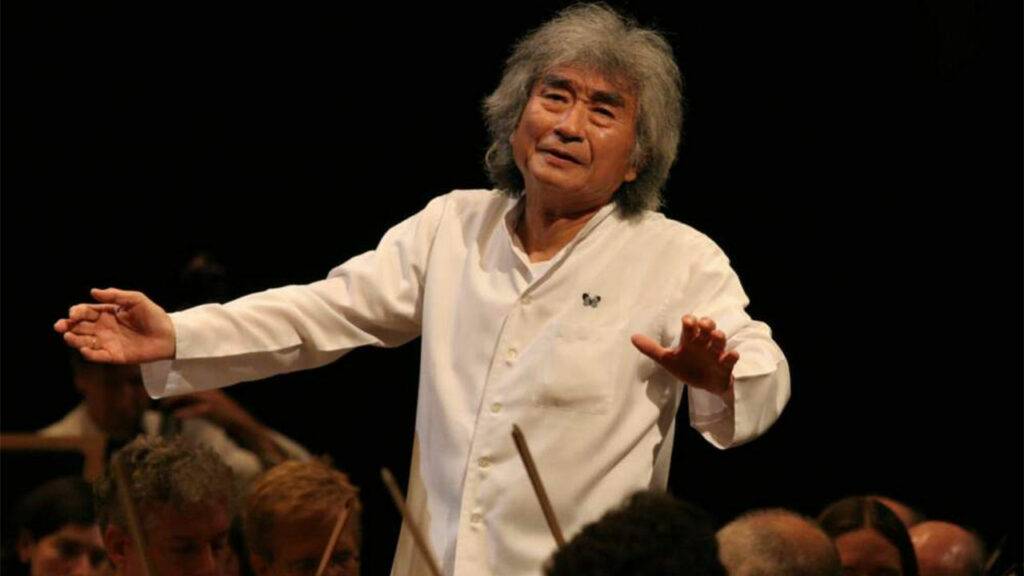The world of classical music mourns the loss of a legendary figure as Seiji Ozawa, the Japanese conductor renowned for his three-decade leadership of the Boston Symphony Orchestra, passed away at the age of 88. Ozawa’s impact on the classical music scene is undeniable, and his death leaves a void that resonates across the globe.
Who Was Seiji Ozawa?
Born on September 1, 1935, in Manchuria, China, under Japanese occupation, Seiji Ozawa’s musical journey began under the tutelage of Hideo Saito upon his family’s return to Japan in 1944. The maestro’s early years laid the foundation for a remarkable career that spanned continents and garnered international acclaim.

Ozawa’s rise to prominence in the United States was swift. Arriving in 1960, he caught the attention of none other than Leonard Bernstein, who appointed him as the assistant conductor of the New York Philharmonic for the 1961-62 season. His New York debut at the age of 25 was met with critical acclaim, with The New York Times praising how “the music came brilliantly alive under his direction.”
Boston Symphony Orchestra Legacy
Seiji Ozawa’s impact on the Boston Symphony Orchestra (BSO) was profound. Leading the BSO from 1973 to 2002, he became the longest-serving conductor in the orchestra’s history. He not only appointed a significant number of its musicians but also attracted renowned performers like Yo-Yo Ma and Itzhak Perlman.
His influence helped the BSO become the world’s largest-budget orchestra, with an endowment soaring from less than $10 million in the early 1970s to over $200 million in 2002.
In 2006, Ozawa received a hero’s welcome when he returned to conduct the BSO, four years after stepping down. The audience’s nearly six-minute ovation was a testament to the lasting impact he had on both the orchestra and its audience.
What Happened to Seiji Ozawa?
Seiji Ozawa’s final notes were played in Tokyo, where he succumbed to heart failure on Tuesday, as reported by his office, Veroza Japan. Despite health challenges in his later years, Ozawa remained active in Japan, serving as the artistic director and founder of the Seiji Ozawa Matsumoto Festival. His last public performance occurred in 2022 during the 30th-anniversary celebration of the festival.
While Ozawa’s tenure in Boston was marked by numerous achievements, it was not without controversy. In 1996, as the ultimate authority at the Tanglewood Music Center, he made decisions that led to the removal of Leon Fleisher, the longtime director of Tanglewood, causing protests from several prominent teachers.

Towards the end of his BSO tenure, some critics expressed disappointment, with The New York Times noting in 2002 that Ozawa had become “an embodiment of the entrenched music director who has lost touch.” Internal dissent also arose, with an anti-Ozawa newsletter circulating among orchestra members.
Legacy and Honors
Despite challenges, Seiji Ozawa’s contributions to the world of classical music are celebrated. He elevated the Tanglewood Music Center to international prominence, and in 1994, a music hall at the center was named in his honor. His work with the BSO earned him two Emmy awards for TV programming, highlighting his influence beyond the concert hall.
Ozawa’s legacy extends beyond accolades and awards. He held honorary doctorates from prestigious institutions and was honored at the Kennedy Center Honors in 2015 for his significant contributions to American culture through the arts.
Seiji Ozawa’s funeral, in line with his family’s wishes, was a private affair attended only by close relatives. His passing marks the end of an era in classical music, leaving behind a legacy that will resonate for generations to come. As the world pays its respects, the echoes of Ozawa’s baton will forever linger in the hearts of those touched by his unparalleled musical prowess.


